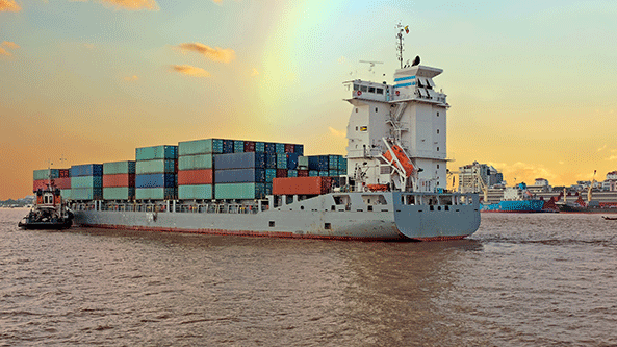A new hope of environmentally friendly world-wide shipping

Photo: Shutterstock
A new sustainability partnership may help clear our conscience when buying products from the other side of the world. Recently, CBS Maritime was granted a great opportunity to address issues related to sustainability within the shipping industry. This opportunity was given by a council from the other side of the world.
In a partnership with Sauder School of Business (University of British Columbia) CBS has been awarded $2.5 million Canadian Dollar (DKK 15.654.250) by the Canadian Social Sciences and Humanities Research Council (SSHRC). Three continents are involved in the project covering 17 universities and 17 companies. The cooperation will continue during the next six years.
“The partnership aims to increase the level of understanding of green shipping initiatives and challenges and to identify pathways for effective policy, investment and innovation,” says Director of CBS Maritime Henrik Sornn-Friese, who is co-chairing the partnership together with Professor David Gillen from UBC. Sornn-Friese underlines how this partnership upholds the strong position of the Danish maritime industry:
“We might be small on a world-map but in a shipping and maritime context, Denmark is one of the biggest players around. We are the seventh largest shipping nation in the world.”
Read Danish Shipping Facts and Figures Dec. 2017
Optimising the green shipping initiatives
With more than 80 percent of world trade travelling on ships, a well-functioning maritime shipping and supply chain is crucial to our everyday life and economic welfare. International shipping currently accounts for nearly three percent of global CO2 emissions and this figure is growing. Unless we see major improvements in governance and innovation efforts, shipping could be responsible for 17 percent of global CO2 emissions in 2050, according to a European Parliament study.
Right now, a major knowledge gap is affecting the ongoing international regulation on the future of maritime transportation, according to Henrik Sornn-Friese:
“While there is well-developed technical literature and policy documents on green ship design such as building more climate friendly engines, green shipping is relatively under-investigated within social and political science. How do you build a green business strategy? How should a supply chain be constructed? Scholars lack a better understanding of leadership-related components,” says Sornn-Friese.
With this initiative, CBS Maritime also takes part in unfolding the ambitions of the Maritime Strategy Team in strengthening the global position of the Danish maritime industry towards 2025.
Read about the recommendations for the Danish maritime industry by the Maritime Strategy Team
Vacancy announcement for a new position as part time professor within Maritime Economics and Logistics
For more information, please contact Henrik Sornn-Friese.
About the Project
Under the joint leadership of CBS Maritime and the Centre for Transportation Studies at the Sauder School of Business (University of British Columbia,) the partnership on ‘Governance and Innovation for a Sustainable Maritime Supply Chain’ aims to increase the level of understanding of green shipping initiatives and challenges and identify pathways for effective policy, investment and innovation. In addition Associate Professor Peter Hall from Simon Fraser University is also co-chairing the partnership.
While new eco-friendly business models are emerging and public and private ‘green shipping’ rules and incentives are accelerating, policy and innovation efforts are uncoordinated and often inconsistent. The consequence is growing regulatory fragmentation, increased investment risk, public confusion, and uncertain economic, business and environmental outcomes.
A key aspect for the partnership will be to address five main areas related to the global maritime supply chain that require improved sustainability governance: trade, ports, value chains, business models and stakeholders. The focus will be to further advance knowledge of issues and opportunities for business and policy-makers.
Co-director for CBS Maritime Leonardo Santiago heads the partnership in the business model area. Associate Professor René Taudal Poulsen, Professor Stefano Ponte, Professor Juliana Hsuan and Associate Professor Christiana Parisi.